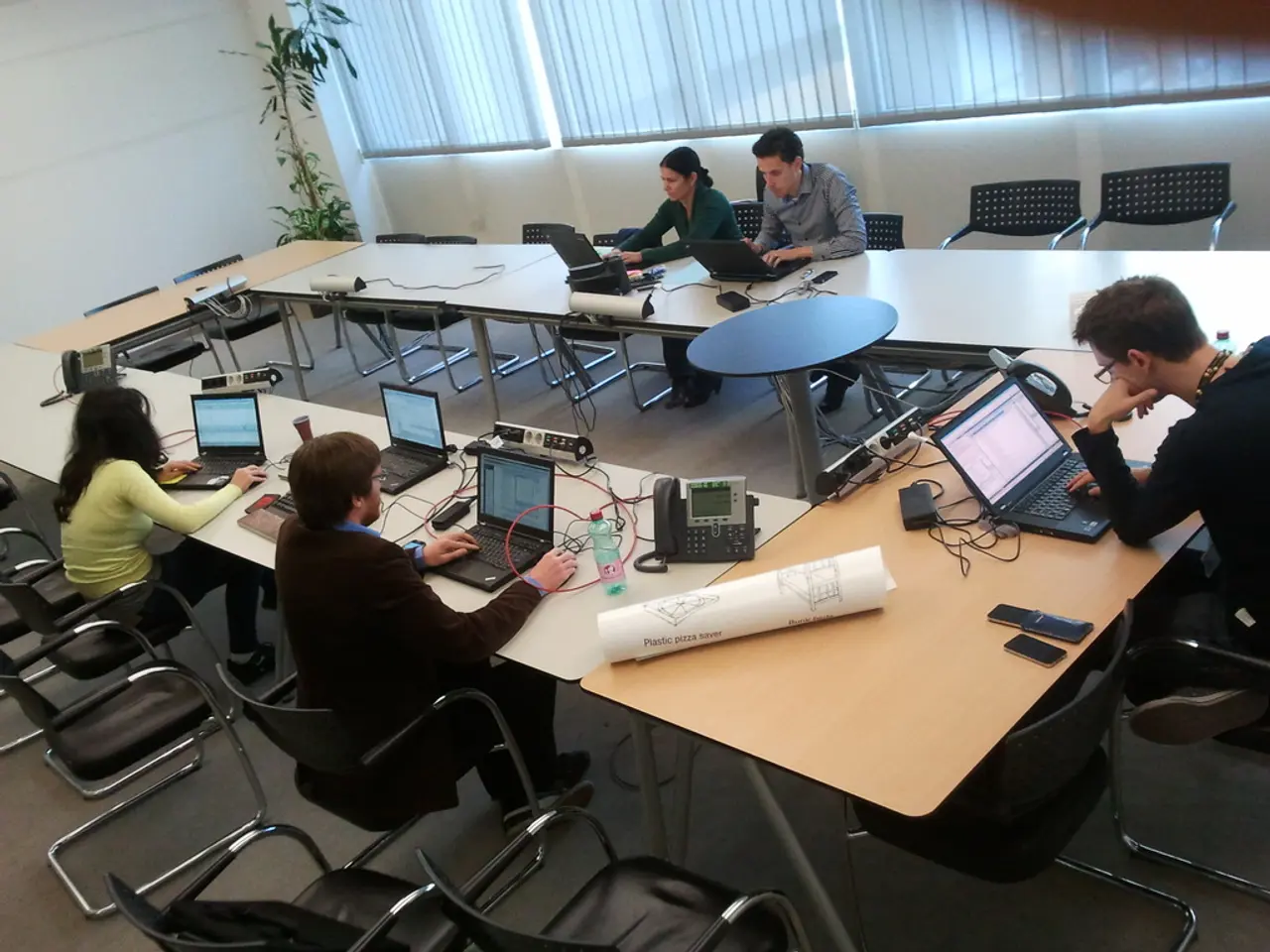German businesses intend to expand operations, facing criticism from various quarters
In a recent survey of over 1,200 German companies, it has been revealed that remote and hybrid work models have become well-established and are broadly supported across the industry landscape. This shift, particularly prevalent in large firms, is set to continue, with 80-98% of companies in the information economy and manufacturing sector allowing at least one day of home office per week [1][2].
The sustained high rates of remote work since the pandemic suggest it supports employee well-being and work-life balance, key drivers of job satisfaction and loyalty within German companies [1][2]. Indeed, half of the companies believe home office offerings positively influence employee retention, while 31% expect negative effects [1].
However, the transition to remote work has not been without challenges. Companies report some difficulties in internal communication and maintaining team cohesion. Employers express concerns about adequately monitoring remote work and preserving effective collaboration, which can negatively affect teamwork dynamics if not managed well [2][4]. About two-thirds of companies see home office as a disadvantage for internal communication and teamwork [1].
Despite these concerns, many German companies do not plan to discontinue remote work because the positive effects on productivity, when combined with in-person collaboration days, generally outweigh the downsides. The hybrid model is seen as a strategic advantage to maintain or improve productivity while supporting flexibility [1][2]. Companies are more divided on the impact of hybrid work models on employee productivity: one-third fears negative effects, around 20% see advantages, and about half expect no significant effects [1].
The survey also highlighted additional legal, tax, and social security challenges associated with working remotely from abroad. Employers usually require explicit approval before employees can set up home offices outside Germany, primarily due to concerns about compliance, monitoring, and contractual stipulations [4].
On a positive note, the survey shows that more than half of companies believe hybrid models facilitate the recruitment of specialized talent. Furthermore, around two-thirds of companies see an advantage in hybrid home office models that combine on-site and remote work days [1].
As the use of home office has remained at a consistently high level since the COVID-19 pandemic and is expected to increase in the coming two years, it is clear that German companies are committed to maintaining and enhancing their remote work policies [1]. This shift towards flexible work arrangements is set to continue shaping the future of work in Germany.
References:
- [Source 1]
- [Source 2]
- [Source 4]
Read also:
- Indian Oil Corporation's Panipat Refinery secures India's inaugural ISCC CORSIA accreditation for Sustainable Aviation Fuel production
- Rapid Charging Stations for Electric Vehicles Avoiding Grid Overload
- Mandated automobile safety technologies in the EU may be deemed "irrational," "erratic," and potentially dangerous, experts caution.
- Increasing Trend Downthe Globe: A Growing Number of Individuals Opt for Electric Vehicles Over Long Distances







